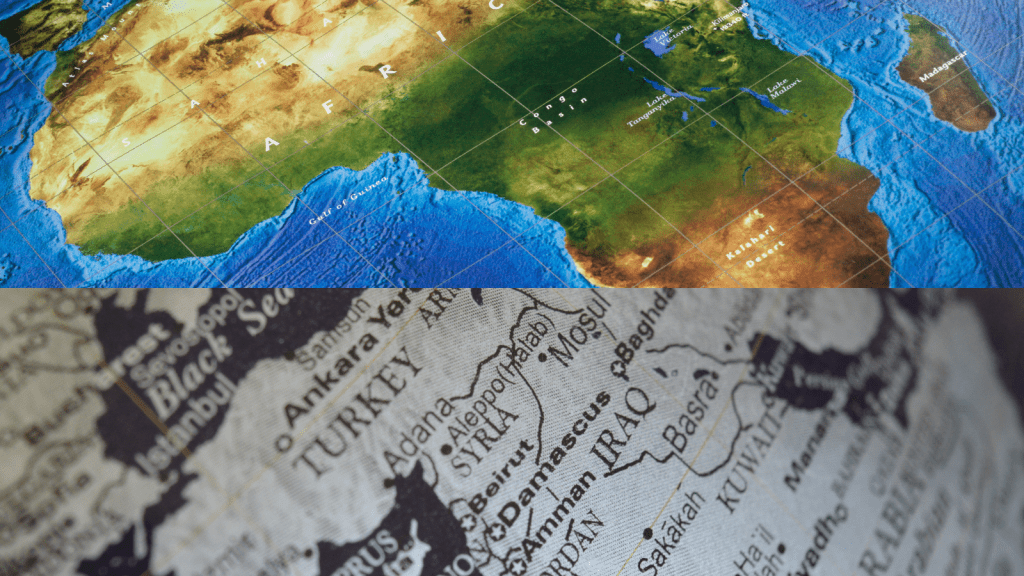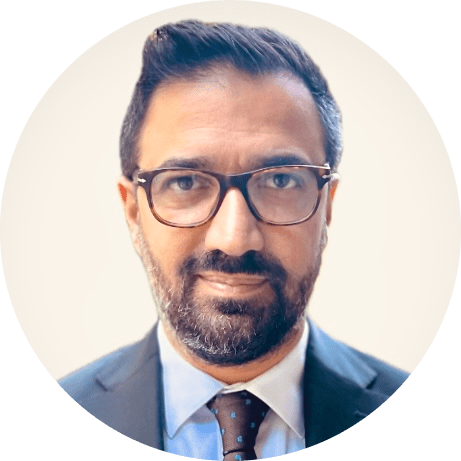
As an emerging middle power country seeking to expand its diplomatic and economic influence beyond its traditional allies and geographic scope in the post-Cold War period, Türkiye launched its Africa opening (Africa Action Plan) in 1998. Given the political and economic transformation in Türkiye in the early 2000s, a more substantial and more effective engagement with the continent began in 2005 when Ankara declared it the “Year of Africa”, and consequently African Union declared the country as a ‘strategic partner’ in 2008. However, it can be said that the year 2011 given Türkiye’s engagement with the continent a take-off, when the then-Prime Minister, Turkish President Erdoğan paid an official visit to the famine and drought-hit Somalia to draw the international community’s attention to the humanitarian disaster.
Since then, a vast amount of changes has taken place in Ankara’s bilateral relations with many countries across the continent, particularly in the Horn of Africa region. Turkish state institutions such as the Turkish Cooperation and Coordination Agency (TIKA), the Turkish Maarif Foundation, the Presidency of Religious Affairs (DIYANET) and the related Turkiye Diyanet Foundation (TDV) as well as non-governmental organizations have intensely been engaged in many countries to offer development and humanitarian aid and have offered cooperation to local stakeholders. More significantly, Ankara has aggressively expanded its diplomatic visibility across the continent as it increased the number of its embassies from 12 in 2002 to 44 as of 2022. Turkish Airlines flies to more than 50 destinations across Africa, while thousands of students from Africa study in Turkish universities as they are granted bursaries under Turkish Scholarships program or African students are educated in Turkish schools operated by the Turkish Maarif Foundation. President Erdoğan visits the continent frequently and hosts leaders of African nations more than seldom to strengthen bilateral ties. The abovementioned engagement, especially through TİKA’s development aid cooperation and effective projects, has assisted many underprivileged countries across the continent to build their infrastructure that serve their citizens or helped built their institutional capacities in many sectors from healthcare to agriculture to security.
Moreover, through engagement built via development cooperation, Turkish private sector and businesses were able to establish connections with the continent, making it a profitable market for Turkish goods and a region for Turkish investments in many areas. In Somalia, a country seen as a prime example of Ankara’s engagement in the continent, for instance, Turkish companies are running both the airport and the port in the capital Mogadishu.
At a more grandiose level, the effective and successful engagement through development aid projects has elevated Türkiye’s ‘perceived prestige’ as a middle power state with capabilities, brought forward Ankara as a reliable actor for cooperation and an alternative to traditional Western donors linked to the continent’s negative memory of colonialism and exploitation. From East to West, Türkiye has aimed to offer itself as a partner that is seeking a ‘win-win’ partnership that protects mutual interests, not only through transfer of goods, services, and technology, but as a partner that also help the states in the continent with transfer of know-how and build their human capital.
The nearly two-decade-old engagement by Ankara, as mentioned above, has yielded results for Türkiye to expand its diplomatic and economic influence in the region, paving the way for more strategic cooperation with many countries especially in areas of security, energy and defense sectors. Recently, several events have shown how Ankara has been able to reap the fruits of its diplomatic footprint on the continent.
Defense and economic deal with Somalia
In February this year, Türkiye signed an economic and defense framework deal with Somalia. This new deal, which enables Turkish naval forces to protect Somalia’s seas for a decade, will also allow Türkiye to build and train a navy force for Somalia. Türkiye has already taken part in training of thousands of Somalian soldiers both in Türkiye and also in its largest military base abroad, Turksom, in Mogadishu.
In July, Turkish Energy Minister Alparslan Bayraktar announced that within the framework of the “Hydrocarbon Exploration and Production Agreement” signed between Ankara and Mogadishu, Türkiye will search for natural gas and oil in 3 blocks in the Somali seas. Türkiye’s MTA Oruç Reis Seismic Research Vessel and its support ships are planned to be deployed to Somalia at the end of September. According to seismic researches conducted in 2014, Somalia’s seas may have reserves worth of 30 billion of crude across 15 blocks. In other words, while Türkiye, as an energy dependent country, seeks to diversify its energy sources, it also helps Somalia economic development. More importantly, Ankara’s support to Somalia to build its navy muscle will help the country’s fıght against illegal fishing in its seas and also terrorism. Strategically, while a strong navy will elevate Somalia in the Gulf of Aden, it also leverages Türkiye’s political influence in the region vis-a-vis other rival parties in seeking active role in the region and serves for Ankara’s long-term interests in Horn of Africa. A similar hydrocarbon exploration maritime deal was signed with Libya in 2022 though it has not been actually materialized given the instability in the country.
New ties with Niger and Sahel region
Another significant event to show the new phase of Türkiye engagement with Africa is the course of ties with Niger and the Sahel region countries.
In a declaration of intent signed in mid-July, Türkiye and Niger announced that they will expand bilateral cooperation in the energy field, particularly oil and natural gas. Niger’s Prime Minister Ali Mahamane Lamine Zeine had paid a visit to Türkiye in February at the invitation of Erdoğan. The new deal was inked during a return visit by a high-level Turkish delegation that included Foreign Minister Hakan Fidan, National Defense Minister Yaşar Güler, Energy and Natural Resources Minister Alparslan Bayraktar and National Intelligence Organization (MİT) Director İbrahim Kalın.
Niger’s geostrategic location for intra-continent trade as well as its uranium resources make the country a key actor not only in Africa but also globally. Niger’s deportation of France soldiers last years and also the withdrawal of U.S. soldiers in the coming days make the country vulnerable for its security, peace and stability needs. Two other major actors in the continent, Russia and China, are indeed expected to make their moves to fill in the void created by the U.S. withdrawal and France’s removal. Thus why, Türkiye’s engagement with Niger is strategically important for Ankara’s continuous and long-term presence in Africa. Moreover, Ankara’s presence in the region will also mean that still a NATO member will be on the ground. At a time when there is a political transformation taking place in Sahel region, a successful engagement with Niger through helping country’s economic development will also increase Ankara’s political influence in the region and further amplify its perceived prestige as a reliable partner.
One of the most important elements of Türkiye’s new phase is also the defense agreements Ankara has signed with African nations, including Somalia, Libya, Kenya, Rwanda, Ethiopia, Nigeria and Ghana. In particular, Türkiye’s domestically produced Bayraktar drones delivered to Chad, Togo, Burkina Faso, Mali and Niger have been active in fight against terrorism in the region.
Also, this year, Türkiye has been active as a mediator between warrying parties of Somalia Somaliland, as well as between Somalia and Ethiopia over disagreements related to Ethiopia’s recognition of Somaliland. The first mediation meeting between Ethiopia and Somalia took place in Türkiye in early July. A second round is expected to be held in September.
In conclusion, while Türkiye was merely present diplomatically in Africa in the early 2000s, Ankara is now seen as a reliable actor with increased prestige in several realms. Built upon Türkiye’s historical connection to the Africa that dates back to 15th century without a colonialist baggage as well as the effective contemporary engagement through development cooperation, Ankara is now seen as a strong alternative to Western states for mutually-beneficial partnerships. While this offers Ankara a diplomatic and economic leverage and influence in the region, it also bears with it risks given strong super powers’ rivalry over the continent’s resources, Ankara’s newly engagement in security and energy fields, and the risks arising from the instability in the region, necessitating a delicate and diligent balance in working through regional power dynamics.

Dr. Mehmet Çelik, Daily Sabah
Dr. Mehmet Çelik is the Editorial Coordinator for Daily Sabah newspaper where he also writes weekly columns on current political affairs. The author’s academic research has focused on Turkish foreign policy and impact of development aid.
To cite this work: Mehmet Çelik, “New Phase of Türkiye-Africa Ties: From Development Aid to Strategic Security Cooperation”, Panorama, Online, 2 August 2024. https://www.uikpanorama.com/blog/2024/08/02/turkiye-africa-mc/
Copyright@UIKPanorama All on-line and print rights reserved. Opinions expressed in works published by the Panorama belongs to the authors alone unless otherwise stated, and do not imply endorsement by the IRCT, Global Academy, or the Editors/Editorial Board of Panorama.

